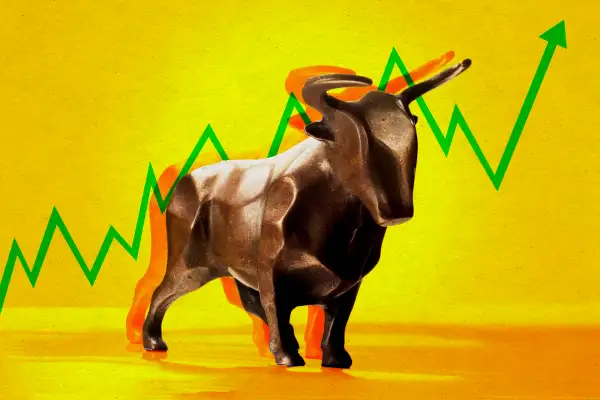Good News for Investors: Bull Markets Usually Last Way Longer Than Bears
Money is not a client of any investment adviser featured on this page. The information provided on this page is for educational purposes only and is not intended as investment advice. Money does not offer advisory services.

Investors got some welcome news earlier this month when stocks entered a bull market. But how long will it last?
The S&P 500, a benchmark index commonly used to measure the performance of the stock market overall, rose to 20% above its previous low on June 8. The move ended its longest bear market since 1948. The index is up around 14% for the year as of Friday morning.
Despite stocks moving past the threshold considered necessary to declare a new bull market, some experts warned that the rally may not be sustainable. Liz Young, head of investment strategy at SoFi pointed out that stocks were still below the peak they hit in January 2022.
“I don’t see that as a new bull market,” Young told Money earlier this month.
The stock market continues to face challenges, like still-high inflation and the likelihood that more interest rate hikes are coming from the Federal Reserve. Still, investors who endured the dismal market performance of last year may be enjoying the most recent gains — and wondering how long they will last.
Historically, S&P 500 bull markets have lasted about three and a half times as long as bear markets, strategists at Bespoke Investment Group said in a recent newsletter.
Since 1928, the index's 27 bear markets have lasted an average of 286 days, while its average bull market has lasted 1,011 days, they added.
If the new bull market were to last as long as the average bull, it would extend to July 2025, the strategists concluded.
What should investors do in a bull market?
While all this bull market talk may have you wanting to switch up your investing strategy, financial advisors typically recommend staying the course instead of trying to time decisions to buy or sell. That way, your cash isn’t sitting on the sidelines during the market’s best days.
“Since no one has ever been able to correctly and consistently predict when those best days will be, the sensible solution is to stay fully invested and let time, not timing, be your friend,” says Eric Diton, president & managing director of The Wealth Alliance. “Timing the market is futile.”
Plus, there’s risk involved in making moves now that might not align with your long-term goals, he adds. If you start to aggressively buy stocks, you’re buying after they’ve already bounced off the bottom. On the other hand, if you start selling now, you risk missing out on future gains because this could be early in the new bull market.
What Diton does recommend you consider is rebalancing — as in, reallocating your portfolio so it is once again in line with your risk tolerance and goals. For example, if you are aiming for a portfolio that's 60% in stocks and 40% in bonds but the stock portion as ballooned with the recent market gains, you may want to sell some stocks and buy some bonds to get back to the original weightings.
Overall, he concludes that, "your strategy should not change because we are in a bull or bear market."
AI Stocks Are on a Tear — and Experts Say It’s Not a Bubble
History Suggests Stocks Could Keep Rising in the Second Half of 2023

